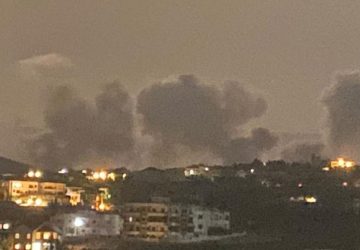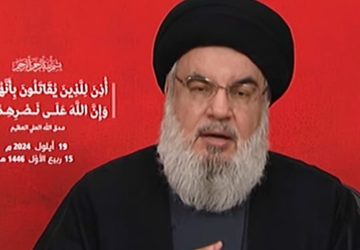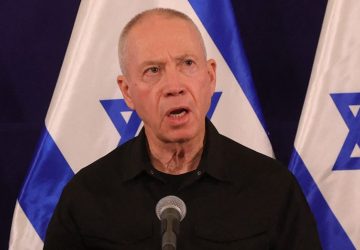US Secretary of State Antony Blinken Thursday urged against “escalatory actions by any party” in the Middle East, following the explosions of devices of Lebanese militant group Hezbollah blamed on Israel.
“France and the United States are united in calling for restraint and urging de-escalation when it comes to the Middle East in general and when it comes to Lebanon in particular,” Blinken said after talks in Paris with his French counterpart Stephane Sejourne.
Blinken said this was especially important at a time when the international community was continuing work to agree a ceasefire in Gaza to end the conflict between Israel and Palestinian militant group Hamas.
“We continue to work to get a ceasefire for Gaza over the finish line… We believe that remains both possible and necessary. But meanwhile we don’t want to see any escalatory actions by any party that makes that more difficult,” Blinken said.
Sejourne, making one of his final public appearances ahead of a cabinet reshuffle that will see him sent to Brussels as France’s new EU commissioner, said both France and the United States were “very worried about the situation” in the Middle East.
He said both the United States and France were coordinating to “send messages of de-escalation” to the parties.
“Lebanon would not recover from a total war,” he said.
United States Secretary of State Antony Blinken arrived in Paris on Thursday for talks on the Middle East hosted by France following attacks on Hezbollah operatives attributed to Israel.
Washington has not explicitly condemned the explosion of hundreds of communication devices used by group operatives across Lebanon, which cost dozens of lives and injured thousands.
But the White House on Wednesday warned all sides against escalation, as did France.
The latest events in Lebanon risk undermining US efforts to engineer a ceasefire between Israel and Hamas in Gaza.
Blinken was in Cairo hoping to make progress on ceasefire negotiations when the two waves of explosions involving pagers and walkie-talkies happened Tuesday and Wednesday.
During his Paris stop, scheduled to last just a few hours, Blinken met with Foreign Ministers Stéphane Séjourné of France, Antonio Tajani of Italy and the United Kingdom’s David Lammy.
Germany was represented by an official in the absence of Foreign Minister Annalena Baerbock, diplomatic sources said.
Blinken will also see President Emmanuel Macron at the Élysée Palace.
The meeting will focus in particular on the state of talks aimed at reaching a ceasefire in Gaza and the situation in Lebanon, Italy’s Tajani said in a statement.
Blinken said on Wednesday in Cairo that a ceasefire in the Israel-Hamas war in Gaza would be the best way to stop violence from spreading in the Middle East.
It was Blinken’s 10th trip to the region since the start of the war.
His visit was another bid to salvage stalled negotiations mediated by Egypt, Qatar and the US to end the conflict.
No other regional stops, including Israel, were on his itinerary.
“We all know that a ceasefire is the best chance to tackle the humanitarian crisis in Gaza, to address risks to regional stability,” he said.
A possible strengthening of Western support for Ukraine in its war with Russia is also on the agenda for Thursday’s gathering in Paris, Tajani said.
Blinken met Ukraine’s President Volodymyr Zelensky in Kyiv last week.
With AFP





